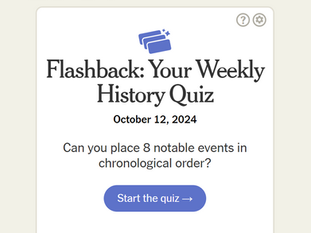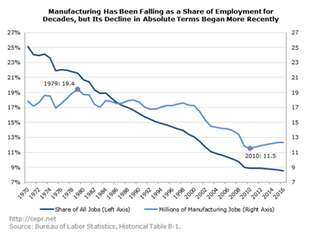
MATTHEW HAMMOND
Aspiring Social Studies Teacher,
former Antitrust Enforcer & Dad
The Northern Lights near Reykjavík, Iceland (Feb. 2023, MCHammond)

First, I'll get this out of my system since it is the first thing I think of whenever I hear the word "collective."
We are the Borg. You will be assimilated. Resistance is futile.
Here is a link to the Star Trek wiki on Fandom that NCL would consider a collective.
Another post related to A New Culture of Learning (NCL) (chs. 4–5).
(references in parentheses are to NCL.)
On to chapters 4 and 5 of NCL, which focus on learning from the collectives around us and that we have access over the internet. Prior chapters dealt with the fact that the old ways of learning just can't keep up with today's rapidly changing world, which is the world that we need to prepare students for. Now the focus is on peer-to-peer learning that is amplified by the collective nature of new media. (p. 50)
Education research shows that students learn better when they are active and engaged with others. Interaction with others makes the learning more meaningful and often learning occurs organically even when the roles of teacher and student are undefined. NCL acknowledges that learning from active engagement isn't new, but argues that the internet provides access to so many more passionate groups of people drawn together by common interests or goals where that active learning can occur. These are NCL's collectives. More importantly, learning is collaborative in a collective because participants are "shap[ing] and augment[ing] the stream of information" while they learn. (p. 52)
A particular strength of online collectives is that there are seemingly no limits on their ability to scale up and that they often thrive as they grow and their memebership become more diverse. (pp. 52–53) I particularly like NCL's notion of a collective because it requires participation and when participation wanes, a collective disappears. Their members have just moved on, and the collective has served its purpose. Fortunately, the knowledge of the disappearing collective is preserved, at least, indirectly as it was shared and incorporated into other collectives and knowledge bases around the internet. It's knowledge may also be preserved directly via the Internet Archive (aka the Wayback Machine).
I need to stop and take a moment to urge everyone to donate to the Internet Archive. It provides such a useful service to find information that would otherwise be lost. The Internet Archive has recently been besieged with lawsuits from publishers and music rights organizations. We need to make sure it doesn't go away.
The Wayback Machine also preserves information that entities want to make disappear. In my former life, I used information pulled from the Wayback Machine to confront companies with information from their websites that they had immediately been taken down as soon as we opened an investigation because it was inconsistent with their after-the-fact explanation of their conduct.
The beauty of the collective is that it is usually fueled by the passions of its members, inherently encouraging participation and engagement among its members, allowing the collective (a big group project) to accomplish more than all of its members could on their own. NCL then recounts how social networks and blogging enable these collectives and how collectives in amateur astronomy and among university students in online study groups have led to new discoveries and greater learning. (pp. 60–71).
Reflecting on this, I am a member of a few collectives—the community of my UU church, the network of UU OWL facilitators, and the Antitrust bar (even though I've retired)—but just a few. As a matter of time management and encouraged by my introversion, I have a very limited presence online and on social media. I'm on LinkedIn, but that was motivated by a desire to be able to see info about business executives that came up in investigations. And I only rejoined Facebook a few years ago in order to get firsthand experience with advertising that appears on Facebook related to my work on the search advertising aspects of United States v. Google LLC (D.D.C.).
As I embrace a new culture of learning, I need to look to join other collectives related to teaching and social studies, which is going to take some effort and some time on my part. As a first step, I have joined the National Council for the Social Studies. I'll work on taking a second step before the end of the year.




